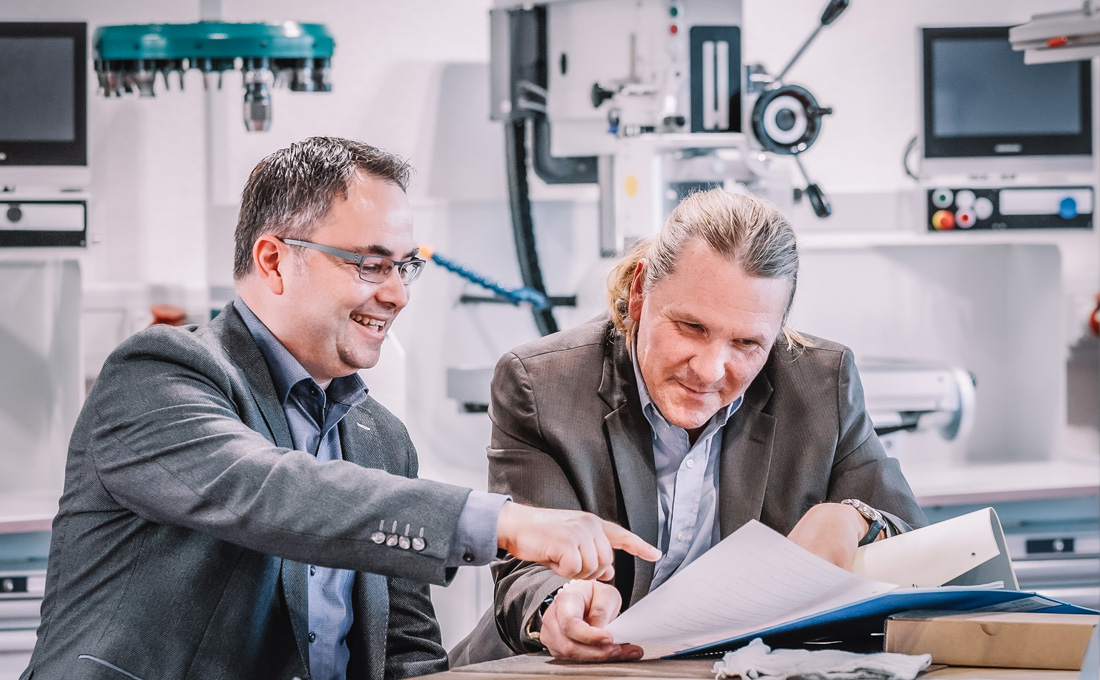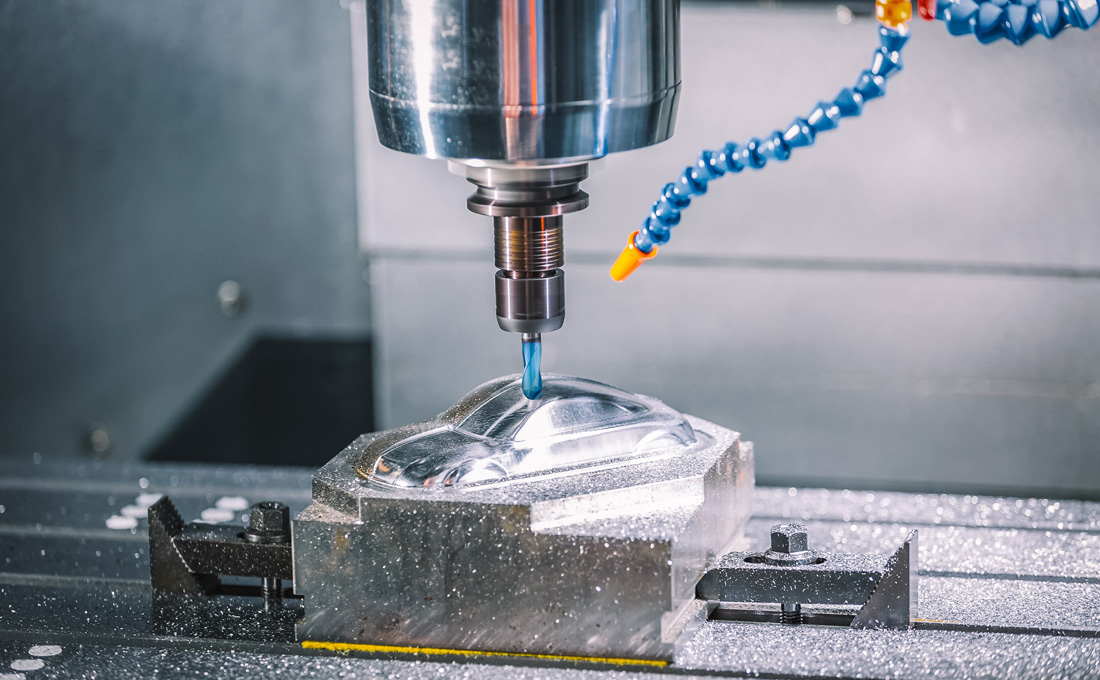Swissmechanic Zurich - An association reinvents itself
More identity. More passion. More dynamic.
These are the values and goals that Dominik Fischer and Jann Dössekker have set for the Swissmechanic Zurich association. And Dössekker and Fischer, in their capacity as managing director and president, believe they have an obligation: "There have been many profound changes in our industry in recent years", says Fischer. So an industry association cannot avoid the question of who they actually are — and what path they want to take in the future with their members?
Finding the answer to this question is an important process that, according to Jann Dössekker, not only requires introspection, but also courage. "We need to change, bring a breath of fresh air to the association and develop a strategy that will benefit both us and our members in the long term", says the managing director. They have already identified the starting points and potential actions.
The Swissmechanic association represents the Swiss mechanical, electrical and metal industries. Not only does it make a case at a political level for the needs of the manufacturing industry, it also ensures that there is a steady stream of young professionals joining the industry by providing general and company-based courses. The Zurich canton section of the association supports local mechanical, electrical and metal companies, provides important expertise and at the same time acts as a driver of innovation by creating new network contacts.
Putting the focus back onto small companies
Recently there was an intensive strategy workshop held by the Swissmechanic Zurich team, where it became clear that the first step should be to focus more on the "old strengths" of the association. "The heart of the matter is always the question of what we can do for Swiss mechanical, electrical and metal SMEs to enable them to trade properly and develop", explains Dominik Fischer. As an association, they therefore intend to focus more on SMEs. "After all, it is their work and innovations that are driving Switzerland forwards".
One of the key concerns of companies in the technical industries relates to training. Dominik Fischer: "Today, some vocational training courses are too 'inflated' and demand too much from training companies." The approaching reform will make this problem even worse as the new training modularity requires even more flexibility from companies. "That can quickly overwhelm a small company", he says.
The consequence of this situation is obvious, with companies turning away from basic training. There is a clearly rising trend here. "That is why we, as a cantonal industry association, must stand behind companies in Zurich." If this fails, the consequences are potentially devastating as the expertise that sets Swiss work apart (and also justifies its price) could be lost over time. The "Swiss made" brand, which is regarded worldwide as a seal of quality and precision, could therefore be jeopardised.
Secure talent for today and the future
Basic and advanced training are therefore essential — and are also a prerequisite for ensuring that the local mechanical, electrical and metal industry has the skilled workers it requires. Not just today, but also in the future. Last year's general meeting at Swissmechanic Zurich heard that many companies are unable to provide the necessary machinery or labour to offer apprentices the training to satisfy the new requirements. This means that companies often cannot do this alone. But what if they didn't have to?
Jann Dössekker uses the terms "Mechanical, electrical and metal swarm intelligence" and "mechanical, electrical and metal swarm competence". What sounds like artificial intelligence software actually focuses on human skills — which can be found in one form or another in every company. "If we combine this expertise and these skills, we create something that is greater than the sum of its parts", says Dössekker with great conviction. Something that benefits every single stakeholder.
The industry's concerns can be mutually addressed by working together on training in a coordinated way. As a practical side effect, this creates a professional exchange between companies — and that is what is meant by mechanical, electrical and metal swarm intelligence. This provides opportunities for synergies, for example by apprentices exchanging their experiences with each other. "And as an association, at Swissmechanic Zurich we can take on this role as a hub," says Dominik Fischer.
Moving with the times
What should vocational training include to address the needs of the mechanical, electrical and metal industry in 2022 (and beyond)? Dominik Fischer and Jann Dössekker make a distinction between the content and organisation of the training courses. In terms of content, the basic course must be based on the real hot topics of the industry. The technologies and approaches of Industry 4.0, for example, are rarely addressed, or are only done so in passing. Although the modular approach of the reform may remedy this, it also increases the requirements in such a way that some companies will be unable to comply with it.
"In the interests of SMEs, we must therefore make sure that vocational training is no longer focused on large mechanical, electrical and metal corporations, but on small businesses", says Fischer. That would be a real game changer. "To initiate this process, we are working on a portfolio of training courses that will serve the needs of our customers in the long term". Young professionals and also career changers should enjoy their training, be able to expand their skills using their talents and then make use of their expertise in the company.
Jann Dössekker and Dominik Fischer are pursuing an ambitious goal. A goal that demands change not only from the mechanical, electrical and metal industry, but also from its association. "We are now in the process of building a new ship", explains Dössekker. "And it must be able to reach new shores, not just the port", adds Fischer.





